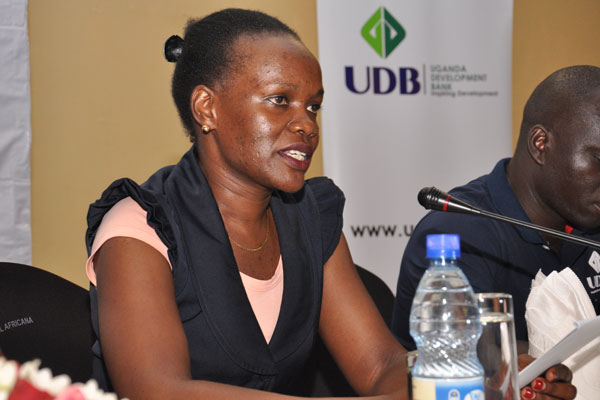Uganda, like the rest of the world, is reeling from the shocks of the #Covid-19 pandemic that placed the economy in a chokehold. The recent Ukraine war has upended supply chains and sent fuel prices soaring to unprecedented figures. This has reverberated across the World with a deadly sting especially in low developed countries and strangulated the global safety net to buffer weak economies such as Uganda.
A huge chunk of corn and barley is trapped in Russia and Ukraine because of the war, while an even larger portion of the world’s fertilizers is stuck in Russia and Belarus. The result is that global food and fertilizer prices are soaring.
However, Uganda has a comparative advantage in Agriculture with its arable land and can go beyond the cliché of being the regional basket to supply East, Central and Southern Africa, and the rest of the world with organic food, fresh fruit and vegetables.
Uganda is also a jewel in the crown as a favourite tourism hotspot and growing fortunes in its minerals sector should ensure that the country makes the much-vaunted leap to middle-income status with ease.
However, there are two other critical sectors that must match our comparative advantage —the health and education sector. The #Covid-19 pandemic has already shown us why the health sector is a critical area that needs robust investment. Uganda spends billions of shillings treating VIPs in medical facilities abroad as the ordinary taxpayers languish in ailing hospitals. This is akin to medical apartheid. The other critical area is the education sector. As the bus departs towards the fifth industrial revolution, Africa can’t afford to continue lagging behind only offering a paltry 2 per cent of trade and services to the entire world and remain the poster-child of a neo-colonial agenda— a sanctuary for the developed world for its resources.
The cornerstones of a policy framework for developing a suitably skilled workforce are—broad availability of good-quality education as a foundation for future training—a close matching of skills supply to the needs of enterprises and labour markets— enabling workers and enterprises to adjust to changes in technology and markets— and anticipating and preparing for the skills needs of the future.
When applied successfully, this approach nurtures a virtuous circle in which more and better education and training fuels innovation, investment, economic diversification and competitiveness, as well as social and occupational mobility – and thus the creation of more but also more productive and more rewarding jobs.
Good-quality primary and secondary education, complemented by relevant vocational training and skills development opportunities, prepare future generations for their productive lives, endowing them with the core skills that enable them to continue learning.
As the #Covid-19 pandemic ravaged businesses and sales of SMEs cratered, President Museveni revealed that the government had capitalised Uganda Development Bank (UDB) to offer loans to some of the most critical sectors of the economy.
Amongst some of the most affected businesses were school institutions, some of which have defaulted in regard to loans from commercial banks leaving a huge gap in providing quality education to learners.
If UDB could lend to this critical sector, this could offer a saving grace to the vital education sector.
We must either commit to building a well-educated citizenry who can compete on merit globally or we shall perish with incompetent run-of-the mill products.
UDB needs to undertake a policy configuration to ensure that they don’t limit funding to upcountry schools but also look at Kampala and the greater environs such as Wakiso to provide loans to primary school institutions, which are the edifice of a competent human resource.
In any case, countryside schools are largely under Universal Primary Education (UPE), whose next phase should now cater for improving the qualitative aspects of teaching, infrastructure, the feeding and well-being of pupils.
Local entrepreneurs who are establishing schools in the city and the outskirts ought to be supported with UDB loans to meet the needs of the high-population explosion as more Ugandans migrate towards emerging towns and cities but to also cater for the quality education needs for the region, a good tribute that Uganda once enjoyed.
This fits well within the lofty 2040 National Development Plan.
However, UDB in 2020 approved loans and disbursed a total of Shs 444 billion.
The beneficiaries include Amour Traders limited, which received Shs 870,157,890, Kasawo Grain Millers got Shs1,030,000,000, Yellow Star Processing Limited Shs 500,000,000, NUMA Feeds (U) Limited got Shs 200,000,000, Arise and Shine Maize got Shs450,000,000, Agrinet received Shs148,592,000, Jesa Farm Dairy Limited was given Shs 15,377,550,179, Ask International Limited got Shs573,693,094, Aponye received Shs5,000,000,000.
Other recipients include Mulwana Foods Shs130,000,000, Post Bank Shs10,000,000,000, Besepo Shs529,406,700, New Bukumbi Shs 659,500,000, Niem Establishment Shs1,000,000,000 Akamwesi, Shs 20,795,200,000, Power Africa Shs300,000,000, Global Company Ltd 2,145,582,006, Smileplast Shs712,292,200, Nice House of Plastics Limited Shs3,750,000,000, Kiddawalime Bakery Limited Shs 4,961,129,110, Quality Plastics Shs21,587,271,579, Wandaz Products Limited, Shs113,714,472, Nice House of Plastics Ltd Shs 8,093,746,196, Wandaz Products Ltd Shs 587,171,462, Kinkizi Traders Shs2,746,372,300, Kaizen Business Limited Shs 747,000,000, Manyakabi ACE Shs300,000,000, Abasaiija Kweyamba mubuku Farming Shs 400,000,000, Nyamitsindo Farmers’ Cooperative Shs 500,000,000, Honey Pride Shs169,838,828.
Others are Finance Trust Bank, which got Shs5,000,000,000, Highagro Agri (U) Limited got Shs389,999,353, Zigoti Coffee got Shs 6,799,295,404, Pillars Trading Company Limited received Shs 200,000,000 Hill-side Agriculture Shs3,268,805,982, Wazalendo Shs30,000,000,000, Hotel Africana Moroto Limited Shs2,904,244,705, Emburara Safaris Ltd Shs 1,100,000,000, Tembo Safari Lodge Limited Shs 510,000,000, Trisek Hotel received Shs932,597,737, Desert Breeze received Shs 2,581,740,000, and the he Alpha Leisure Center got Shs655,560,000
For instance, Kasawo Grain Millers got an approval of Shs 300,000,000 but received Shs1,030,000,000. Jesa Farm Dairy Limited got an approval of Shs7,424,000,000 but received Shs 15,377,550,179, Aponye received an approval of 4,287,983,616 but later got Shs5,000,000,000, Akamwesi got an approval of Shs 4,239,200,000 but received more than four times the amount, which stood at an astronomical Shs20,795,200,000, Global Company Limited got an approval of Shs948,500,000 but received a disbursement of Shs 2,145,582,006 and Quality Plastics got an approval of Shs 6,752,551,916 but received Shs21,587,271,579.
Whereas some deservingly got the loan disbursements, the jury is still out whether other firms were priority areas.
In a nutshell, the building blocks of any skills strategy must be solid foundation skills and stronger links between the worlds of education and work. This in turn requires good-quality education in childhood; good information on changes in demand for skills; education and training systems that are responsive to structural changes in economy and society; and recognition of skills and competencies, and their greater utilization in the workplace. To be effective, policy initiatives in these areas will also need to be closely linked with economic and social policy agendas.







